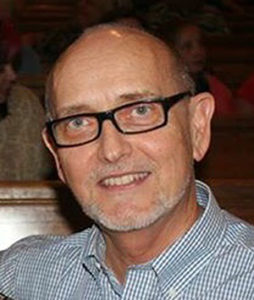Pastors and congregations, fasten your seat belts, secure your crash helmets and get ready. The 2020 elections are coming, whether we’re ready or not.
No doubt, some churches will choose to ignore the partisan fray and pretend nothing consequential is occurring outside the church walls. Others will wade in with their biases on full display, certain that God is on their side.  A third, more helpful approach is for churches to engage this tumultuous political season thoughtfully and honestly.
A third, more helpful approach is for churches to engage this tumultuous political season thoughtfully and honestly.
This third way is possible only if we refuse to give in to despair. Yes, the rancor is frequent and intense, and the vitriol is often intensified by social media and talk radio. But in his book, The Soul of America, historian Jon Meacham reminds us we’ve been here before. And, believe it or not, it has been worse. My home state of Missouri still bears the scars of the bitter national debate over slavery and the ensuing Civil War. In this border state, the mistrust and hatred ran deep, even within churches.
“If the body of Christ cannot model unity in diversity during these months, we’re guilty of false advertising.”
The congregation I pastor in Jefferson City, Missouri, has no church minutes from 1861-1865. In 1861, Union soldiers confiscated and occupied the First Baptist Church building, using it as barracks. Near the end of the war, the building was used as a stable. Yes, our congregation can affirm that we’ve been here before, and it was worse. But we survived.
How do we live together in these uncomfortable, highly emotional and polarized times, awaiting the outcome of a momentous fall election? Here are five suggestions:
1. Distinguish between political and partisan. The gospel is political because it seeks to influence citizens regarding values. On the other hand, to be partisan is to endorse a particular candidate or party. Pastors are not only wrong to publicly endorse candidates; they are naïve to do so. Politicians will use pastors and churches to their advantage unless and until clergy push back and draw a line.
I happen to be writing this column on the birthday of Dietrich Bonhoeffer (1906-1945), theologian, pastor and an early resister of Hitler’s attempts to co-opt the German church. Pastors today need Bonhoeffer’s courage – the courage to say no to secular power’s seductive lure and the courage to disappoint others in the name of truth.
2. Beware of idolatry. No candidate or political party should be blindly worshiped. The Kingdom of God is more than any human construct. When we make our personal political views equivalent to the gospel, that is idolatry.
3. Choose dialogue over monologue. Being prophetic in the pulpit is a worthy goal. But why should the pastor be the only one who speaks? Some topics are emotional and complex. They require a two-way conversation.
Moving toward one another instead of away from each other, being curious about another’s convictions, remembering St. Francis’ prayer about seeking to understand more than being understood – these hold great promise if we’re willing to do the work.
4. Practice the Golden Rule. Jesus said, “Do to others as you would have them do to you” (Matthew 7:12, NIV). Consider exploring “Golden Rule 2020: A Call for Dignity and Respect in Politics,” a resource provided by a broad coalition of national Christian organizations, reflecting input from people on the right, left and in between. The material includes resources for worship, small groups, prayer and readings.
I recently shared with my congregation some practical suggestions from Golden Rule 2020. A sampling: “I will use precise and truthful language … without exaggerating. I will look for areas of mutual trust. I won’t use inflammatory words or derogatory names. I won’t question another person’s faith or patriotism.”
5. Above all, practice humility. It’s time for some of us in the church to dismount our partisan high horses and acknowledge that we never possess all the truth. Federal Judge Learned Hand (1872-1961) once asserted that “the spirit of liberty is the spirit which is not too sure that it is right.” In these days of noisy, self-righteous assertions, a little humility goes a long way.
Oddly enough, the 2020 election might be the church’s best witnessing opportunity. Or our worst. After all, if the body of Christ cannot model unity in diversity during these months, we’re guilty of false advertising. We’ve billed ourselves as a community that transcends human differences. We have confessed that Jesus is Lord above all dogma, philosophy or creed.
If the Church of Christ cannot be a laboratory of love in this political season, what message do we really have for the world?
